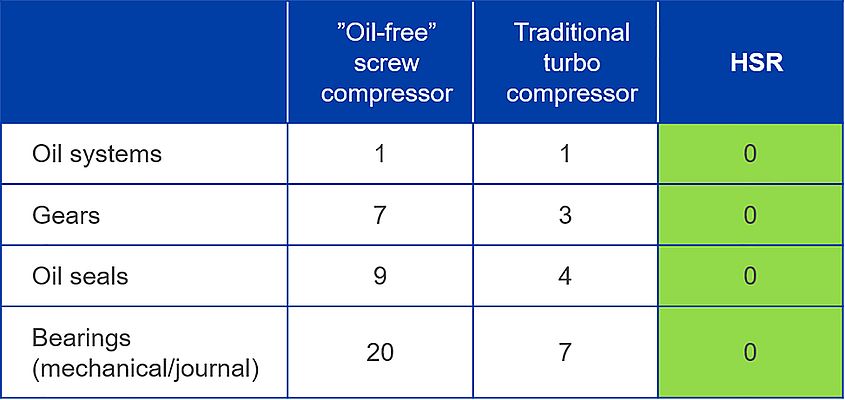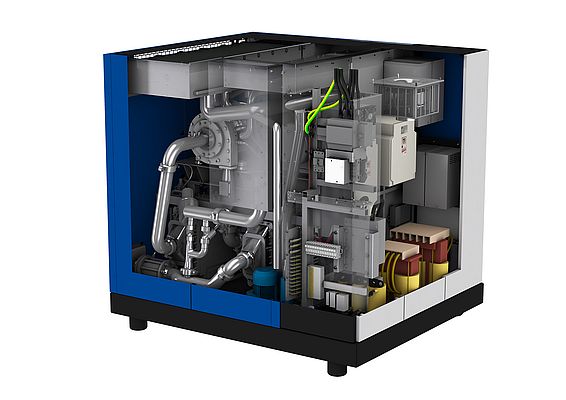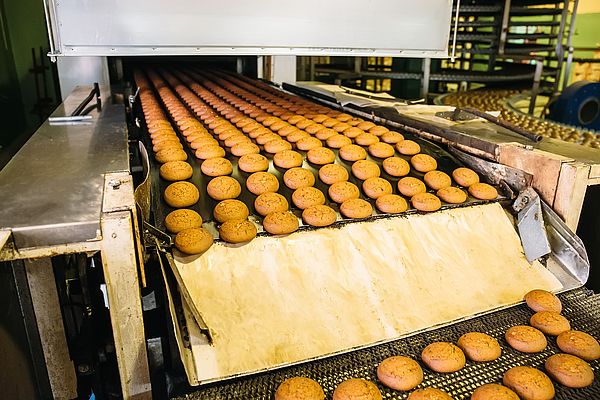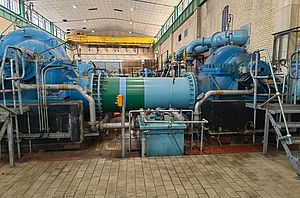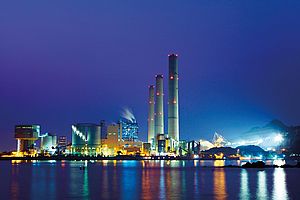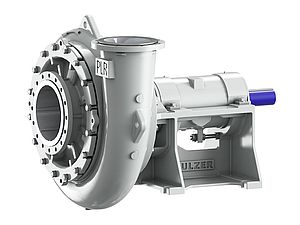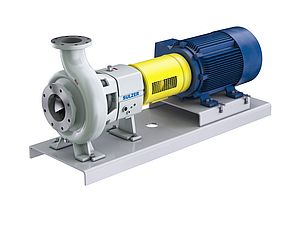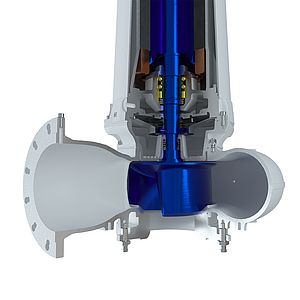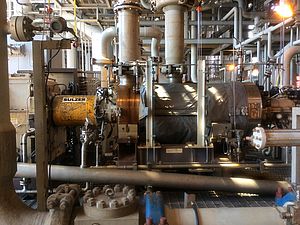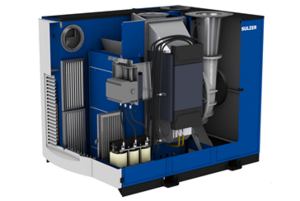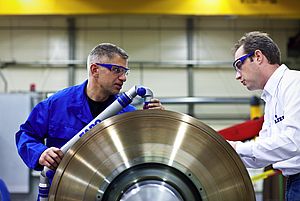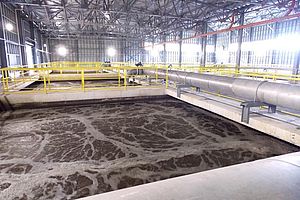From the beverage industry to dairy and from eggs to bakeries, a wide variety of food industry companies require access to compressed air for an efficient and product-safe operation. With Sulzer's oil-free turbocompressors, food processing companies can focus on the food, knowing their compressed air is contaminant free for hygienic food products that meet and exceed industry standards.
Dairy industry
The dairy industry relies heavily on compressed air. In addition to clearing out pipes, air is used to agitate raw milk in tanks, close and open pneumatic valves, clean and make product packaging, and palletize the finished products. Because the air interacts heavily with the final product, it is imperative that it is free from contaminants such as oil, water or moisture, bacteria, dust, or other particles. Many of these contaminants can be removed through intensive filtering, and traditional air compressors rely on oil to operate. These types of compressors come with a high risk of oil contamination, regardless of how clean and well maintained they are. Often so called "oil-free" compressors use tens of liters of oil to lubricate the gears, and the only thing protecting the air stream from the oil is a simple seal. This oil seal can leak or deteriorate, resulting in contaminated air and contaminated products. Instead of choosing an oil-injected screw compressor, or even an "oil-free" compressor that requires oil for lubrication, dairy producers may want to consider an entirely oil-free compressor. Sulzer's high-speed HSR turbocompressors do not require oil or any other lubricant because thanks to the active magnetic bearing (AMB) technology, the parts of the machine do not touch.
Commercial bakeries
Baked goods, while delicious, leave crumbs everywhere. To ensure that tools and machines remain crumb-free, many bakeries and baked goods factories use compressed air to clean the processing machines. Beyond cleaning, compressed air is used in many process phases. For example, pneumatic pushers that guide material flows are directly in contact with the end product. Regulation (CFR) Title 21 states that any food manufacturing plant, including bakeries, can only use contaminant-free air. Unfortunately, oil-based compressors require regular, continuous upkeep to ensure the air is oil free. Devoting time and money to regular cleaning can interrupt the workflow and lower the production rate. Oil filtration needs constant maintenance and surveillance to ensure the lowest possible oil content in compressed air. Heavy filtration causes a pressure drop that forces the compressor to be operated at a higher pressure setpoint, which again increases the energy demand. In Sulzer's oil-free HSR turbocompressors the need for maintenance is minimized. Because the metal parts do not touch, no maintenance of critical components is required. The remote monitoring of the compressors gives an alert when there is a potential problem. The constant monitoring means more uptime because potential issues can be solved before they become problems that could cause downtime.
Fruits and vegetables processing
Compressed air is essential in the packaging of fruits and vegetables. Due to the high cleanliness standards in the food industry, all fruits and vegetables are cleaned before packaging. However, once washed, the products need to be dried before being packed in plastic. Too much moisture can result in premature ripening and the development of mold. Many fruit and vegetable companies use compressed air to dry their products before packaging. Compressed air speeds up the drying process and increases efficiency. When using compressed air on fruits and vegetables, the air must be completely contaminant-free. Legacy technology "oil-free" air compressors have Teflon-coated metal screws to allow for smooth rotation. As the screws wear down, the Teflon coating releases into the machine and the airstream. These particles can be dangerous for the consumer, and the wear quickly deteriorates the efficiency of the compressor. Because the HSR turbocompressors are oil and touch-free, they do not require Teflon or other non-stick coatings, and this eliminates the possibility of contamination. For fruits and vegetables, air compression is one of the last steps before packaging.
Why choose 100% oil-free compressed air for the food industry? In addition to being more efficient and ensuring less contamination, a 100% oil-free compressor is more ecofriendly than oil-run machines. Food companies that focus on sustainable production will appreciate the smaller carbon footprint of the HSR turbocompressors when compared to oil-based machines. The HSR turbocompressors offer significant energy saving possibilities in the form of waste energy recovery as well. With the standard liquid cooling system, it is possible to capture over 90% of the used energy into hot water and reuse it in the process for heating or other needs. Most compressors waste this energy by blowing it into the atmosphere. Sustainability is not only about reusing materials. It also about choosing long-lasting materials that do not require regular replacement. In the HSR, the metal components do not touch. This means there is little to no wear, and only few replacement parts are needed during the lifetime of the machine. Besides saving money spent on replacement costs, saving the environment, ensuring product safety, boosting production uptime, and fulfilling governmental regulations, the customer will receive smaller energy bills. This is because the HSR turbocompressor is controlled by a variable speed drive to ensure the most energy-efficient air production for varying demands, providing excellent efficiency that does not deteriorate.


